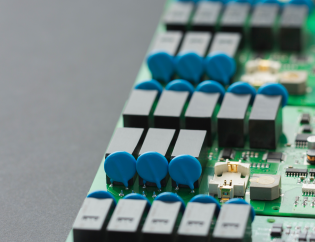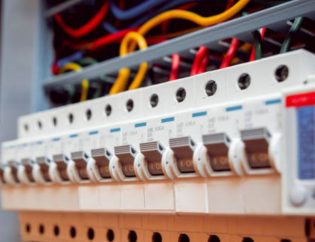In this blog post, we will provide an overview of circuit breakers, the different types available, and their advantages and disadvantages. We will also compare the various types of circuit breakers and discuss factors to consider when selecting the right one for your specific application.
Types Of Circuit Breakers
Using the right circuit breaker for your application is essential, as using the wrong type can result in inadequate protection or even damage to the breaker itself. Several different types of circuit breakers are discussed below, each with unique features and capabilities.
SP, SPN, and DP Circuit Breakers
SP, SPN, and DP circuit breakers are single-pole, single-pole and neutral, and double-pole circuit breakers, respectively. Single-pole circuit breakers are commonly used in residential applications, while double-pole breakers are more commonly used in commercial and industrial settings.
Single-pole (SP) and single-pole and neutral (SPN) breakers are typically used for protection against overloads and short-circuit in branch circuits. In contrast, double-pole breakers are used for the protection of 240-volt circuits and larger loads.
Advantages of SP, SPN, and DP circuit breakers include their compact size and ease of installation. However, their main disadvantage is their limited capacity, which may not be sufficient for larger applications.
TP, TPN, and 4P Circuit Breakers
TP, TPN, and 4P circuit breakers are triple-pole, triple-pole and neutral, and four-pole circuit breakers, respectively. These breakers are typically used in industrial and commercial applications requiring higher current ratings.
Triple-pole (TP) and triple-pole and neutral (TPN) breakers are commonly used for protection against overloads and short-circuit in three-phase systems, while four-pole breakers are used for protection of 240-volt circuits and larger loads.
Advantages of TP, TPN, and 4P circuit breakers include their higher capacity and ability to protect three-phase systems. However, their main disadvantage is their larger size and more complex installation requirements.
Comparison of SP, DP, TP, TPN, and 4P Circuit Breakers
There are several factors to consider when comparing the different types of circuit breakers. One of the most important is the number of poles, which refers to the number of circuits the breaker can control.
Single-pole (SP) circuit breakers are designed to protect a single circuit and are commonly used in residential applications. On the other hand, double-pole (DP) circuit breakers can protect two circuits and are often used in commercial and industrial settings.
Triple-pole (TP), triple-pole and neutral (TPN), and four-pole (4P) circuit breakers are designed to protect three or more circuits. They are typically used in larger industrial and commercial applications.
Another essential factor to consider when comparing circuit breakers is the type of protection provided. Overload protection is designed to prevent damage to electrical equipment caused by excess current, while short-circuit protection is designed to quickly disconnect the circuit in the event of a short circuit.
Some circuit breakers offer both types of protection, while others are designed to provide only one variety. Selecting a circuit breaker that provides the appropriate type of protection for your specific application is essential.
The voltage rating of the circuit breaker is also an important consideration. Circuit breakers are designed to operate at specific voltage levels, and selecting a breaker with the wrong voltage rating can result in serious safety hazards.
When choosing a circuit breaker, it is also essential to consider any extra features that may be needed. For example, ground fault protection is a common feature in many circuit breakers and can help prevent electric shock in the event of a ground fault.
Ultimately, the selection of a circuit breaker will depend on the specific application and the requirements of the electrical system. Consulting with a qualified electrician or electrical engineer can help ensure the correct circuit breaker is selected and installed correctly.
Examples:
Examples of situations where each type of circuit breaker may be appropriate include:
- Single-pole (SP) circuit breakers are commonly used in residential applications, such as protecting individual lighting or appliance circuits.
- Double-pole (DP) circuit breakers may be used in larger residential or commercial applications, such as protecting air conditioning or heating circuits.
- Triple-pole (TP), triple-pole and neutral (TPN), and four-pole (4P) circuit breakers are typically used in larger industrial or commercial applications, such as protecting motor control centers or large equipment.
Conclusion:
In conclusion, circuit breakers are essential components of electrical systems, providing protection against overloads and short circuits. Several different types of circuit breakers are available, each with unique features and capabilities.
When selecting a circuit breaker, it is essential to consider factors such as the application, current rating, voltage rating, the type of protection required, and any additional features needed. Proper installation and compatibility with the rest of the electrical system are also critical for safety.
When it comes to selecting the right circuit breaker for your electrical system, it’s crucial to seek professional guidance from a qualified electrician. They have the expertise and experience to assess your specific needs and recommend the most suitable circuit breaker for your application. Contact us now to avail the best electrical care services.
Do you have a question in your mind? If so, make sure to fill out the form below!


